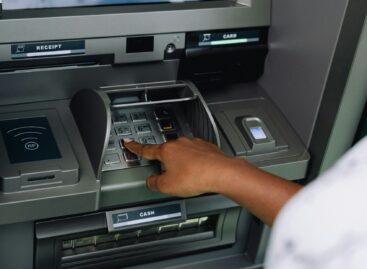This is how salaries will change in the future – an expert gave an opinion
Our everyday lives will fundamentally change – in a few years we will pay completely differently than we do today. According to Balázs Ángyán, CEO of Számlázz.hu, which provides financial administration for nearly a million businesses, embedded payment solutions are the future, the direct role of banks will decrease, while payments will once again take place between the merchant and the customer.
 How will we pay in a few years? What impact will the fintech revolution that is taking place even now have on our everyday lives? According to Balázs Ángyán, we are on the verge of a significant turning point.
How will we pay in a few years? What impact will the fintech revolution that is taking place even now have on our everyday lives? According to Balázs Ángyán, we are on the verge of a significant turning point.
“Perhaps the biggest change will be that – as strange as it may seem – it is as if we are going back in time. In the past, the business took place between the merchant/owner and the customer, the delivery and payment of the products – now this will essentially be the case again, as the deals are concluded between the parties with instant payment solutions, apps, and QR code payments. In many cases, the banks will not be involved in the transaction at all for the participants”
– said Balázs Ángyán.
Although the embedded payment system is complicated in terms of background processes, its popularity is due to the fact that users do not notice any of this: for them, the purchase and administration are just a click of a button. “Behind these financial services are not necessarily banks, but major international fintech companies that complete comprehensive processes in tenths of a second. They assess the customer’s creditworthiness, are capable of delayed payments, and make transfers for us. We must definitely pay attention to these processes, because embedded payment solutions are the future,” said Balázs Ángyán. The managing director of Számlázz.hu also highlighted that in the future, the service provider that provides the best user experience will be able to retain its customers. Modern customers really don’t like unnecessary time-wasting and clicking.
The changes are also creating a new world for sellers and manufacturers. In many cases, the decisions will not be made by humans, but by machines.
“If someone wanted to sell shoes, they advertised the shoes to potential buyers. Until now. However, more and more buyers are now asking artificial intelligence for advice: what to buy, from whom and for how much? Financial service providers and manufacturers will no longer primarily target consumers, but will have to influence artificial intelligence”
– said Balázs Ángyán.
When it comes to shopping, the question always arises: how long will cash last? In Hungary, cash and digital solutions are currently used 50-50%. In Austria, even more people pay with paper money in stores than in our country, while in some Asian countries, online payments are almost exclusively available. It doesn’t seem like the production of wallets will stop anytime soon, at least in the coming years, cash will definitely remain.
“The value of cash has been given for centuries by our common belief that you can buy things with colored pieces of paper. This same belief makes the ones and zeros, or the money recorded in our bank accounts, valuable to more and more people. From this perspective, there is no difference, and for reasons of convenience, electronic payment solutions are expected to continue to spread. At the same time, the tangibility of cash is a value for many, which is why it is expected to stay with us for a long time to come”
– said Balázs Ángyán.
Related news
Retail accounts: banks are already warming up for summer fee increases
🎧 Hallgasd a cikket: Lejátszás Szünet Folytatás Leállítás Nyelv: Auto…
Read more >Breaking: You can withdraw more cash for free with Revolut cards
🎧 Hallgasd a cikket: Lejátszás Szünet Folytatás Leállítás Nyelv: Auto…
Read more >Innovation under pressure: how will the banking sector remain competitive in 2026?
🎧 Hallgasd a cikket: Lejátszás Szünet Folytatás Leállítás Nyelv: Auto…
Read more >Related news
Historic price reduction at ALDI
🎧 Hallgasd a cikket: Lejátszás Szünet Folytatás Leállítás Nyelv: Auto…
Read more >A stable compass in the Hungarian FMCG sector for 20 years
🎧 Hallgasd a cikket: Lejátszás Szünet Folytatás Leállítás Nyelv: Auto…
Read more >








